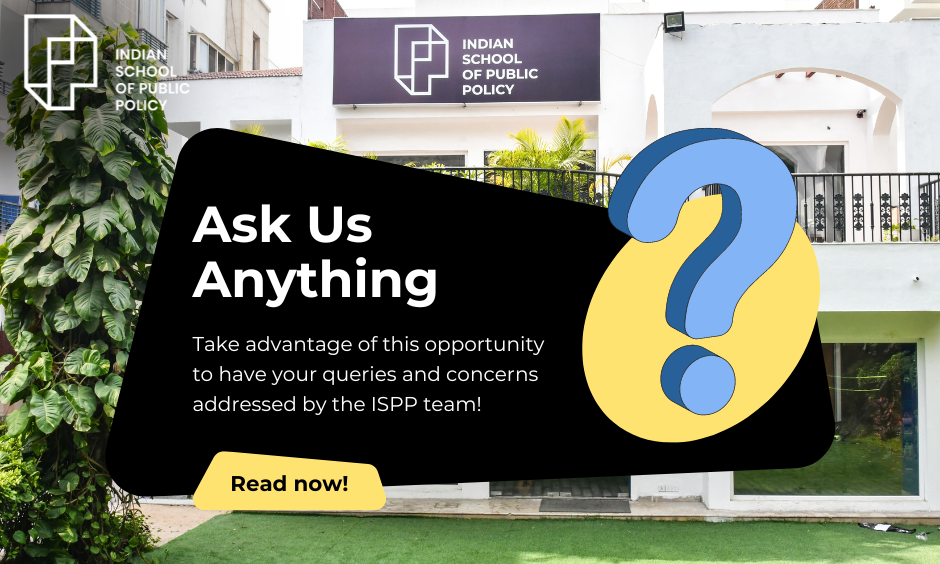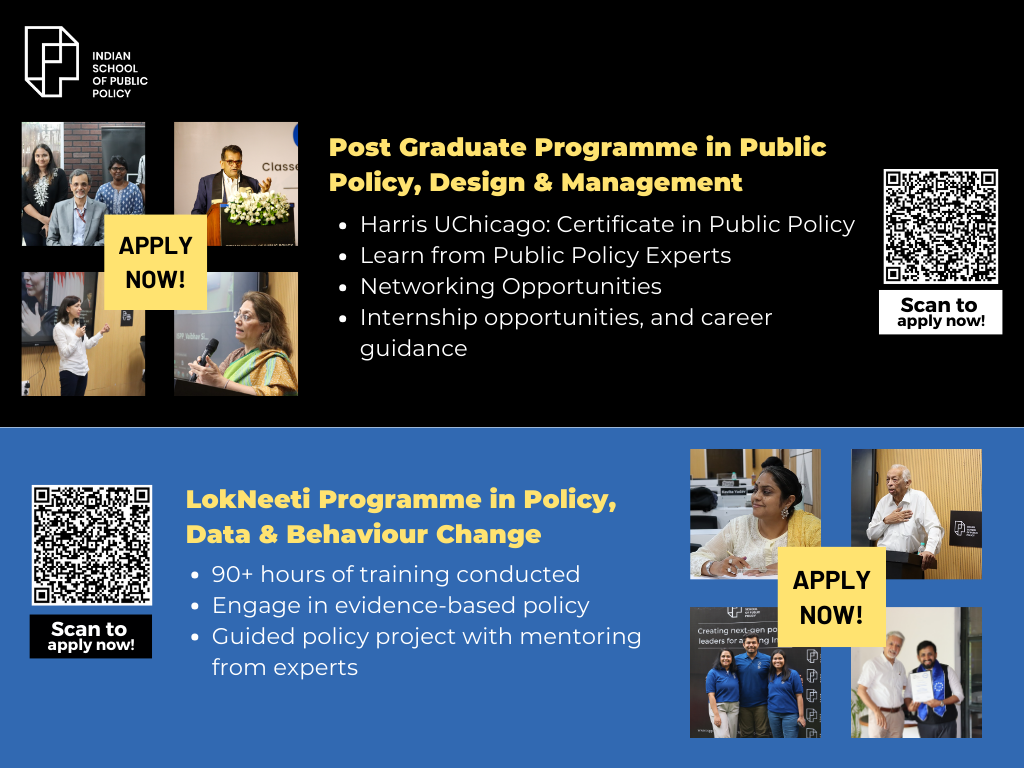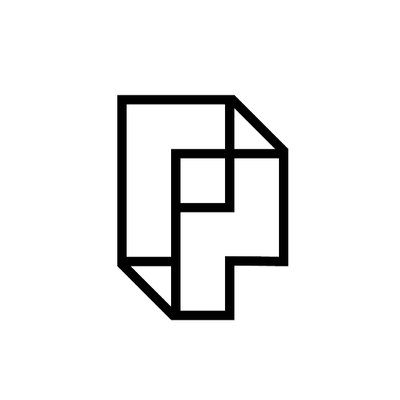
Unveiling the World of Public Policy: Insights from the ISPP Ask Us Anything Session

Have you ever considered a career in public policy? Are you curious about the Indian School of Public Policy (ISPP) and its programmes? If so, then this blog is for you!
This blog post provides a comprehensive overview of the recent “Ask us Anything” webinar hosted by the Indian School of Public Policy (ISPP) on 10th February 2024.
During the webinar, aspiring public policy professionals had the opportunity to interact directly with the ISPP team, gaining valuable insights into various aspects of the programme, admissions processes, career prospects, and unique offerings. From detailed discussions on programme details to addressing queries related to admissions criteria and career trajectories, the session covered a wide range of topics pertinent to individuals interested in pursuing public policy as an academic and professional path.
Let’s delve into the key takeaways from the webinar, highlighting the questions posed by participants and the informative responses provided by the esteemed panellists.
Demystifying the Programmes:
- Lokneeti Programme in Policy, Data & Behaviour Change: Ideal for those seeking an introductory understanding of public policy with its flexible schedule and focus on practical tools.
- Post Graduate Programme in Public Policy, Design & Management: A one-year intensive programme designed to equip students with comprehensive knowledge and skills for diverse policy careers.
Infographic:

Unveiling the Admissions Process:
- Rolling admissions: Apply early to maximize your chances of securing a seat.
- Financial aid: A dedicated committee evaluates applications carefully, and meticulous information sharing is crucial.
- Written test and interview: Focus on understanding policy issues and articulating your career goals clearly.
Career Pathways and Support:
- Diverse career options: From consulting and government to development and research, public policy graduates find fulfilling roles across various sectors.
- ISPP Career Services: Provides networking opportunities, workshops, and guidance to support your job search.
Unique Advantages of ISPP:
- Holistic curriculum: Transcend disciplinary boundaries for a comprehensive understanding of public policy.
- Integrated approach: Learn about the entire policy life cycle, from design to implementation.
- Harris School partnership: Earn an additional certificate in Public Policy and International Development from Harris School of Public Policy, University of Chicago
- Location advantage: Benefit from a wide range of collaborations and opportunities available in Delhi.
Register your Interest to Study at ISPP
Questions asked by the participants
What distinguishes ISPP from other public policy institutions?
While premier management, law, and engineering colleges may offer public policy courses with a slight bias towards their respective disciplines, ISPP distinguishes itself by providing a holistic understanding of public policy, transcending disciplinary boundaries. ISPP stands out for its dedicated focus on providing a holistic understanding of public policy across multiple dimensions.
I have prepared for the civil services, and currently, I am engaged with my startup, with about 12 years of experience in the retail sector. Which ISPP programme would suit my needs best?
Based on your background and current engagement, the Lokneeti Programme seems ideal for you. It provides an introduction to policymaking and equips you with practical tools applicable to your experience, such as project monitoring and behaviour change strategies. The programme’s schedule, with classes on Tuesdays, Thursdays, and Saturdays evenings, allows for balancing professional commitments with studies, with a manageable learning commitment of around 10 hours per week.
Can a person can do the Lokneeti programme first, and then the PDM programme?
The Lokneeti programme serves as a valuable introduction to public policy, offering foundational knowledge and training in various relevant areas such as governance and public administration, economics and politics of policy. While the Lokneeti programme provides around 90 hours of training, the one-year PDM programme offers over 1,750 hours of comprehensive training. Many applicants who have completed the Lokneeti programme have subsequently applied to the one-year programme, benefiting from the foundational knowledge gained. Having completed the Lokneeti programme can indeed provide an advantage during the admissions process for the PDM programme, as it demonstrates a candidate’s commitment to and familiarity with public policy concepts.
What does the PDM programme entail in terms of curriculum?
The programme spans over 7 terms, with core courses covering topics like economic statistics, critical thinking, and design thinking. Following these foundational courses, students delve into core subjects such as the economics and politics of public policy. Additionally, students choose from various domains including education, environment, health, infrastructure, technology, organizations, and food systems and agriculture. Towards the end of the programme, students are required to submit an individual study report addressing a specific policy issue, integrating their learning from the programme. They also undertake an internship where they collaborate with an organization to address a real-world problem and submit a comprehensive report detailing their findings and solutions. Overall, the programme combines theoretical and practical learning to equip students with the skills and knowledge needed for a career in public policy.
Could you provide information about the Immersive Learning Projects at ISPP? When does it occur, and does it run concurrently with the programme? Additionally, what types of internship and placement opportunities are available for students?
The Immersive Learning Projects at ISPP encompasses various activities, including remote projects with external organizations and a full-time internship programme. Scholars are expected to dedicate around 10 hours per week to remote projects, collaborating with organizations such as Chase, India Tech, and CW. Additionally, ISPP has introduced a full-time internship programme from May to July, providing scholars with hands-on experience in diverse sectors. ISPP has a network of over 150 organizations, ranging from social impact consulting firms like Dasra, Dalberg to corporate consulting firms like PwC and KPMG. Scholars also have opportunities to work with think tanks like J-PAL and Education Alliance, as well as industry associations such as IAMAI and FICCI. Government fellowships are another option for scholars, offering valuable experience and decent compensation. Over the years, ISPP has witnessed an increase in corporate hiring, with companies like Borosil Renewables and HP recruiting scholars. The field of public policy is expanding, with new opportunities emerging, and ISPP continues to explore and facilitate these avenues for scholars based on their interests and experiences.
What career services does ISPP offer?
ISPP facilitates networking opportunities with industry professionals visiting the campus regularly for interactions with scholars, fostering valuable connections. Additionally, ISPP provides comprehensive career support to its alumni. Alumni have pursued diverse career paths in business consulting, government, public sector organizations, and development consulting firms. Career trajectories vary based on individual profiles and aspirations, and ISPP offers tailored guidance to support each professional journey.
How would you describe the scholars’ experiences during the placement season?
Over 150 organizations participate in the placement process each year. It’s important to note that while the Indian School of Public Policy (ISPP) provides comprehensive career support, including networking opportunities, workshops on career development, and guidance on interview preparation, placement is not guaranteed. Success in securing a position depends on the support provided by ISPP and the individual efforts of the scholar. Ultimately, the scholar’s engagement in career training sessions, preparedness, and ability to effectively navigate the interview process significantly influence their placement outcomes. The career services team conducts various sessions on professional development, interview techniques, and cover letter writing to aid scholars in their job search. However, the ultimate outcome hinges on scholars’ dedication and active participation in these sessions, as well as their overall engagement with the programme.
What is the average salary of a fresher who hasn’t graduated in political science or related subjects?
Opportunities within the niche field of public policy in India are evolving, with diverse career opportunities available, including roles in market analysis, communications, and government relations. The ISPP programme offers exposure to senior professionals in the public policy space, aiding in career navigation based on individual profiles and interests.
Can you please summarize the admissions process for the PDM and Lokneeti Programme?
The admission process for the Lokneeti programme involves a single stage of application review. For the PDM programme, there are three stages of selection. Applicants meeting the minimum eligibility criteria, such as scoring at least 50% in their undergrad or having no more than a 4-year gap between education and employment, are considered. The first stage involves shortlisting applications based on the eligibility criteria mentioned on the website. Applicants who meet these criteria proceed to the next round. In the second round, applicants undergo a written test consisting of two sections: quantitative and qualitative. Success in each section requires securing a minimum of 50%. Finally, shortlisted candidates proceed to the third round, which comprises a personal interview. During this stage, the panel assesses the applicant’s suitability for the programme based on their background, aspirations, and understanding of public policy. Clear articulation of career goals and a basic understanding of the field increase the chances of admission.
The admission process has transitioned from including a group discussion (GD) to solely comprising a personal interview. Could you elaborate on the distinction between these two assessment methods? Additionally, for the statement of purpose, what specific aspects should applicants focus on when crafting their submissions?
Previously, the admission process included a group discussion (GD), but now it comprises only a personal interview. The difference lies in the assessment method: while the GD focused on group interaction and critical thinking, the personal interview delves deeper into the candidate’s individual suitability for the programme. The statement of purpose serves as a crucial component of the application process, primarily focusing on why applicants aspire to pursue public policy studies. It’s essential to articulate your motivations clearly, demonstrating a genuine interest in the field and showcasing how your background aligns with the objectives of the programme. Additionally, the statement of purpose provides insights into your suitability for the programme and can influence questions asked during the personal interview stage. Therefore, it’s vital to emphasize your relevant experiences, academic background, and future aspirations in public policy.
I was initially instructed to submit the application by February, but the presentation states that the deadline is 30 June. Are there advantages to applying sooner rather than later?
Yes, while the deadline for applications is June 30th, admissions operate on a rolling basis. Applying earlier increases the chances of securing a spot in the programme, especially for those seeking financial assistance, as funding availability may diminish as the cycle progresses. Seats are filled during selection rounds, and applying later in the cycle may decrease the probability of securing a spot. Therefore, it’s advisable to apply early to maximize the chances of admission and financial aid.
Could you provide some insights into the interview process? What types of questions can applicants expect during the interview, and what is the overall experience like?
So, it’s crucial for you to have a clear understanding of why you’re interested in pursuing public policy at this point in your career. As someone with experience in career counselling, I always advise candidates to articulate their motivations clearly. When preparing for a personal interview, you should be able to express your genuine interest in public policy and why you are considering the Indian School of Public Policy specifically. While you don’t need to know every detail about ISPP, it’s beneficial to conduct basic research to demonstrate your interest and preparedness. Additionally, anticipate questions related to your background. For instance, expect inquiries about economic fundamentals if you have a bachelor’s in economics. By keeping these points in mind and preparing accordingly, you’ll likely perform well during the interview process.
Is there a ceiling on financial aid offered to candidates, such as up to 50% of the tuition fee or more or less?
Regarding financial aid, there are no specific upper or lower limits for the waiver you can receive. Our dedicated Financial Aid Committee meticulously evaluates each application, striving to offer the best possible fee waiver. Applicants are encouraged to provide thorough information and supporting documents, as the process is objective. Rest assured, every detail is carefully reviewed, and we accommodate various situations, such as the absence of a PAN card for a parent, by accepting alternative documentation.


